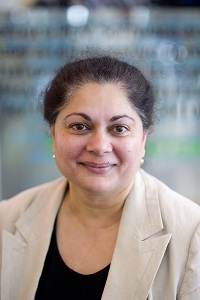60 Seconds with Dr Sudi Lahiri
 How did you first become interested in healthcare operational management?
How did you first become interested in healthcare operational management?
Several years ago, I was doing my practicum at a hospital in the US. The hospital was trying to understand why a number of patients were experiencing repeat visits to the Emergency Department and hospital readmissions. The practicum provided me with the opportunity to look into problems involving delayed transfers of care, need for integrated care, better ways of harnessing data and resources for effective decision-making, and elements necessary for service redesign all with the aim towards simultaneously ensuring patient benefits and system efficiency.
Why is healthcare operational management important to our lives?
People in healthcare management and leadership positions require an ever-broader set of skills to manage services efficiently, effectively and ensure that services are of the highest quality. Moreover, current events have magnified the need to solve problems faster than they arise. Healthcare operational management allows staff to envision strategies that are necessary to ensure service provisions in an ever-evolving service landscape, quickly revise plans based on events on the ground and implement the plans efficiently in a manner that meets patient and carer expectations.
What expertise do you bring to the course/what is your background?
I have had the opportunity to interact with and hence, observe health systems in different countries. While each of these health systems are unique in their own ways, nonetheless, they also share commonalities, i.e., ensuring patient-centred care, efficient resource usage, quality, and safety. Moreover, I work with a highly multidisciplinary group of colleagues whose skills encompass health sciences, industrial engineering, production systems and manufacturing, statistics, and data sciences among others. Taken together, these elements have been invaluable towards enriching the course and its delivery.
How is your job rewarding?
The most rewarding part of my job is when students contact me, after they have graduated, to share that they are using the skills and knowledge that they acquired from the course in their jobs. I really enjoy receiving emails from the course’s alumnae about their jobs and how they are applying the course.
What’s the most important part of teaching?
For me, the most important part of teaching is to nurture genuine curiosity on topics related to healthcare operational management; and equipping students with the necessary knowledge and skills to solve healthcare quality problems. When students themselves ask meaningful questions that’s when the class discussions get really interesting.
What are your interests outside of work?
I like travelling; trying out different recipes; and reading.
